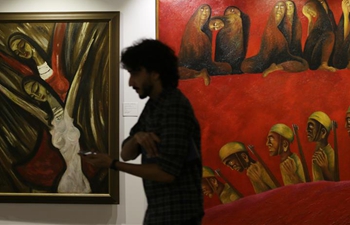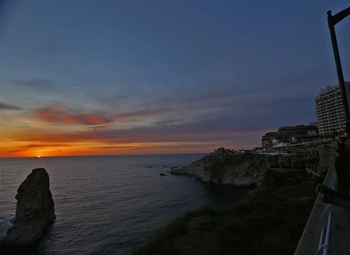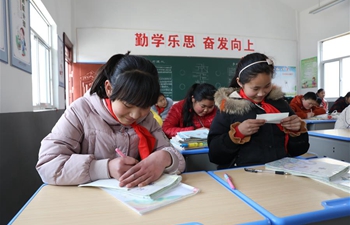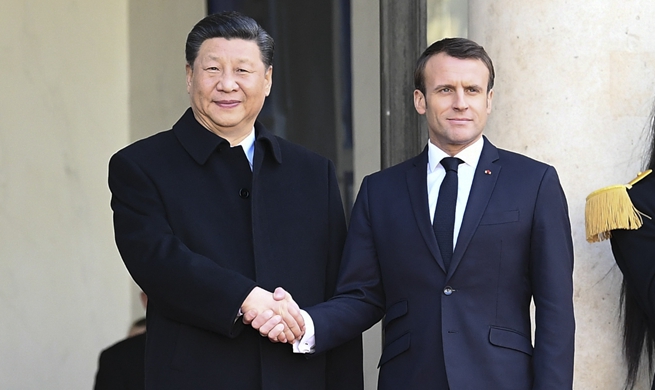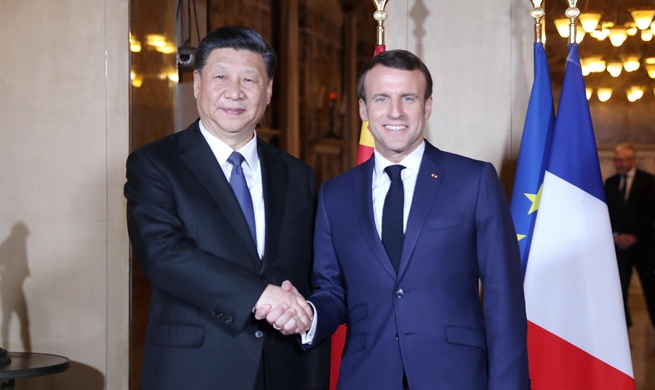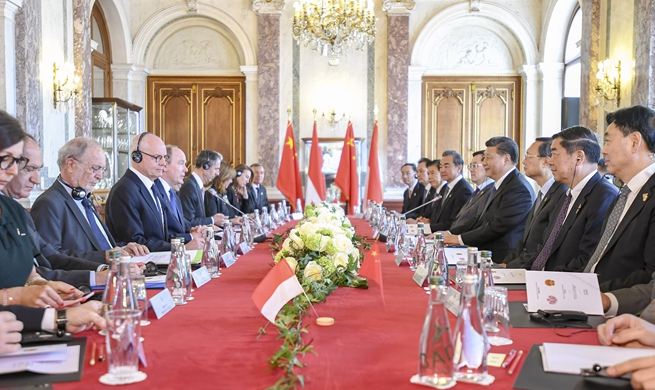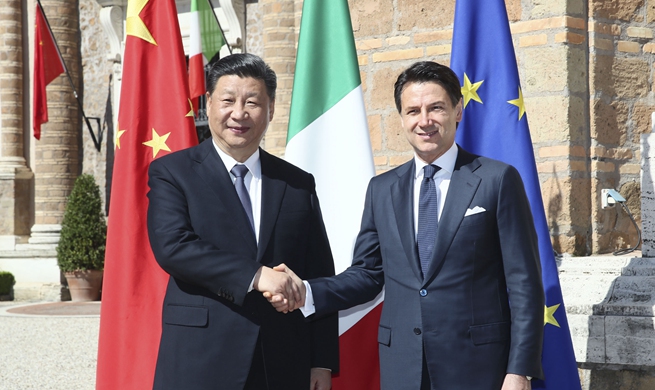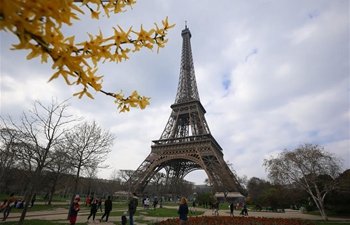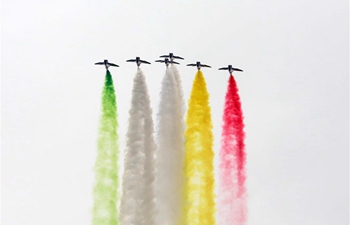by Dana Halawi
BEIRUT, March 26 (Xinhua) -- Lebanese analysts have expressed different points of views about the extent to which Lebanon and Russia can cooperate in different areas in the coming period amid President Michel Aoun's two-day visit to Russia.
Hilal Khashan, chair of the Political Studies Department at the American University of Beirut, does not see any potential collaboration between Lebanon and Russia.
Khashan told Xinhua that Lebanon cannot buy Russian weapons or even get military donations from Russia because the United States, the main supporter of the Lebanese Army, will not allow it.
The United States is the biggest provider of military aid to Lebanon, as the Lebanese army has received a total of 1.5 billion U.S. dollars in military aid from successive American administrations since the 2006 war with Israel.
Khashan believes that Lebanon and Russia cannot collaborate economically either. "Lebanon's economic ties are linked to the West and the Far East but not to Russia," he stated.
He added that the only thing that Aoun hopes to achieve from his visit to Russia is to get the Russian administration to become more forthcoming about the return of Syrian refugees to their country.
The strategy drafted by Russia aims at returning 890,000 Syrians from Lebanon to their country.
Only 172,046 refugees returned so far out of 1.5 million residing in Lebanon.
Political analyst Rajeh Khoury reiterated Khashan's remarks by saying that the goal of Aoun's trip is to reactivate the Russian strategy which has stopped due to the inability of Moscow to pay for rebuilding Syria, noting that the United States and Europe do not want Syria's reconstruction to take place before reaching a political solution in the country.
Khoury said that the Lebanese army is militarily allied with the Americans and Europeans.
"We cannot accept military aid from Russia because the U.S. won't allow it. Also, the Russians do not have the intention to cooperate militarily with Lebanon," said khoury while adding that, on the other hand, holding talks with the Russians gives political weight to Lebanon in its relations with the West.
"This will give the impression that Lebanon can receive support from other powers in the world which prompts the U.S. to increase its support for Lebanon," Khoury added.
Khoury said that Russia may be interested in the oil and gas sector in Lebanon, but Russia can be benefited in a limited way because the Americans play a great role in this field.
Khoury believes that the U.S. has a long term strategy with regard to oil and gas in the East Mediterranean which is why U.S. President Donald Trump has signed a declaration recognizing Israeli sovereignty over the Golan Heights.
"The Golan Heights may also have oil. Exploratory drilling suggests that the territory's reservoirs could potentially yield billions of barrels," khoury argued.
Meanwhile, Sami Nader, director of Levant Institute for Strategic Affairs in Lebanon, ruled out the possibility of Lebanon accepting any military aid from Russia.
However, he assured that Russia will definitely help with the return of Syrian refugees from Lebanon to their homeland because the Russians have great influence inside Syria and on the Syrian regime.
Nader is also much optimistic about the potential of an economic cooperation between the two countries.
"We can have economic cooperation with Russia. The U.S. will not stand in the way. Russia is collaborating with Abu Dhabi and Dubai in the region. Even Israel has strong ties with Russia," Nader said.
Nader believes that Russia and the U.S. can find a way to collaborate in Lebanon.
Amal Abou Zeid, foreign ministry's representative on the joint Lebanese-Russian committee for the return of Syrian refugees to their homeland, told Xinhua that Lebanon and Russia can surely cooperate on the economic levels but not in the military area.
"We want to be far from international conflicts but we surely want to improve our strategic ties with Russia and this has already happened in the oil and gas sector," Abou Zeid said.






